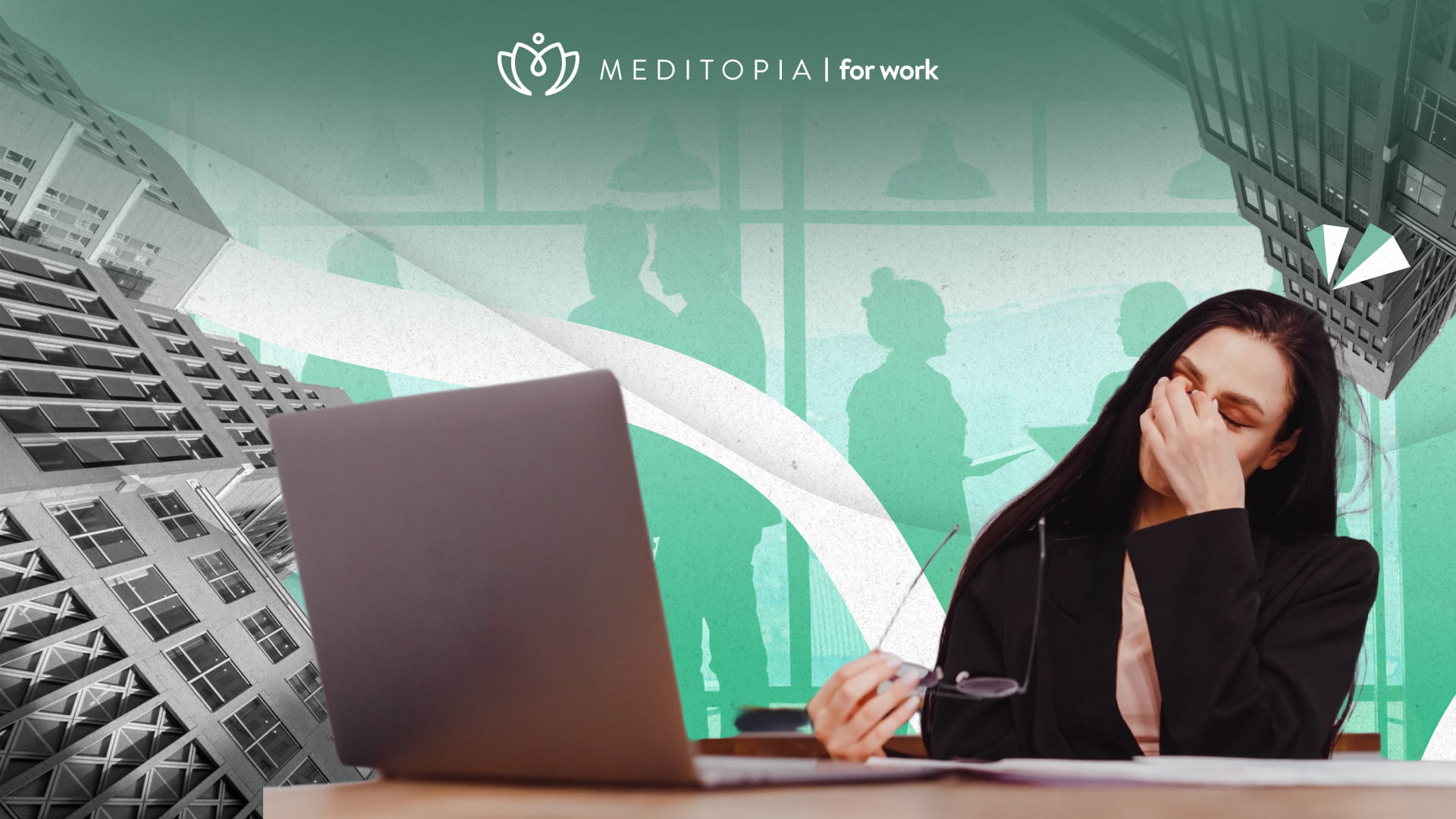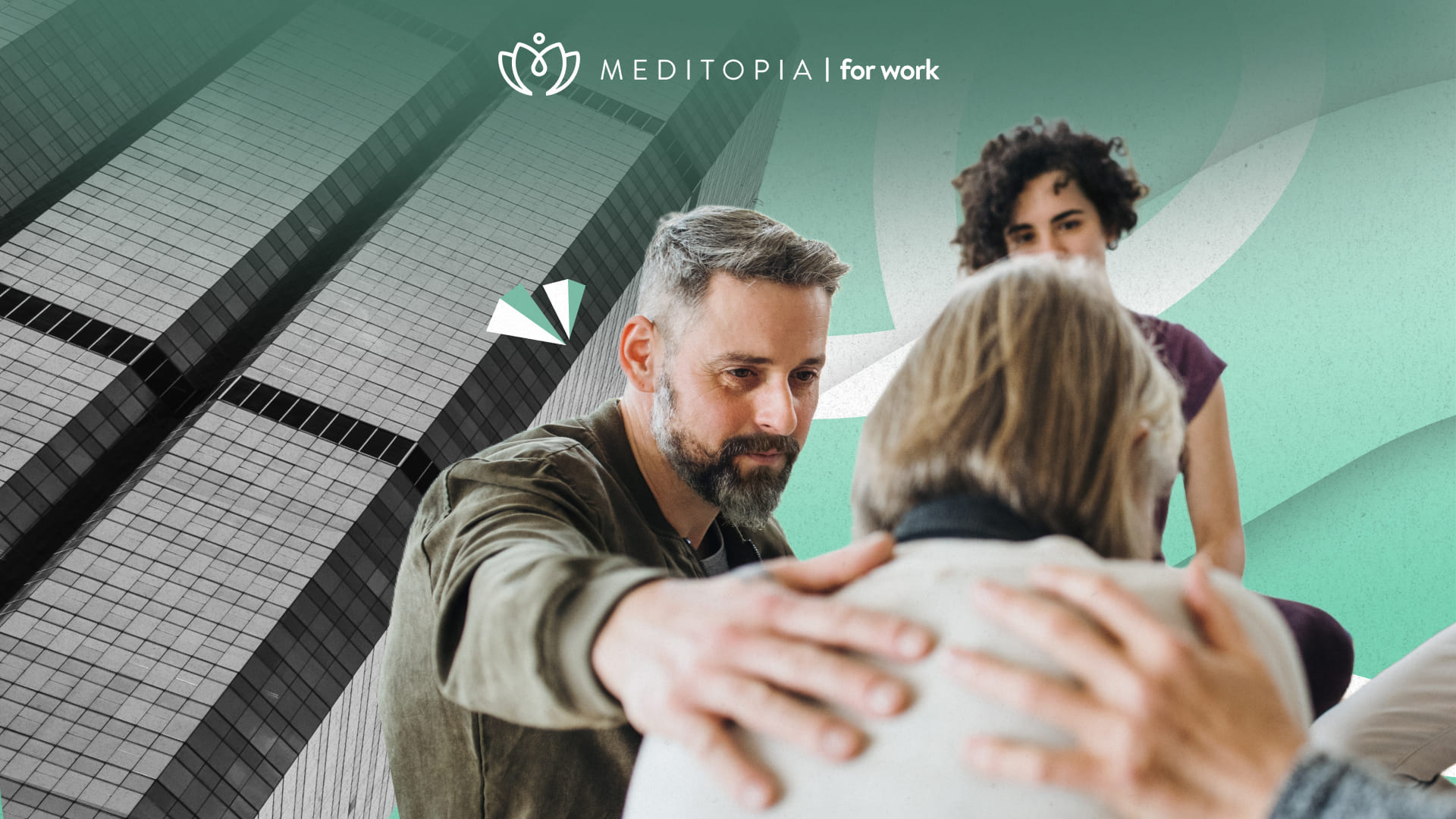79% of employees experience work-related stress every month [1], and many carry that tension home long after they log off. This constant mental “spillover” makes it difficult to recover, leaving us drained instead of restored. Keep reading to discover useful and proven ways to unwind after work.
Why It’s So Hard to Switch Off After Work
This is such a common issue in industries like banking and finance, or healthcare. Sometimes is the thrilling feeling of doing it right, and some others is fear of being perceived as "difficult." Let's explore deeper why is so hard to relax after work lately:
- Remote work: Without a clear physical separation between work and home, the brain struggles to “context switch.”
- From a neuroscience perspective: Stress hormones like cortisol remain elevated after demanding workdays, preventing the nervous system from shifting into its “rest and digest” mode.
- Performance anxiety: Employees often mentally replay unfinished tasks or upcoming deadlines, a phenomenon linked to Zeigarnik’s Effect, our brain’s tendency to fixate on incomplete work. Research shows that unresolved tasks significantly increase mental fatigue and worry [2].
- Digital fatigue & constant connectivity: Around 55% of U.S. workers respond to work messages outside of normal hours at least sometimes [3].
- Always “on” culture: Deloitte found that 77% of professionals have experienced burnout at their current job, with many citing the pressure to be constantly available [4].
- Sleep disruption: Stress and late-night screen time contribute to poor recovery
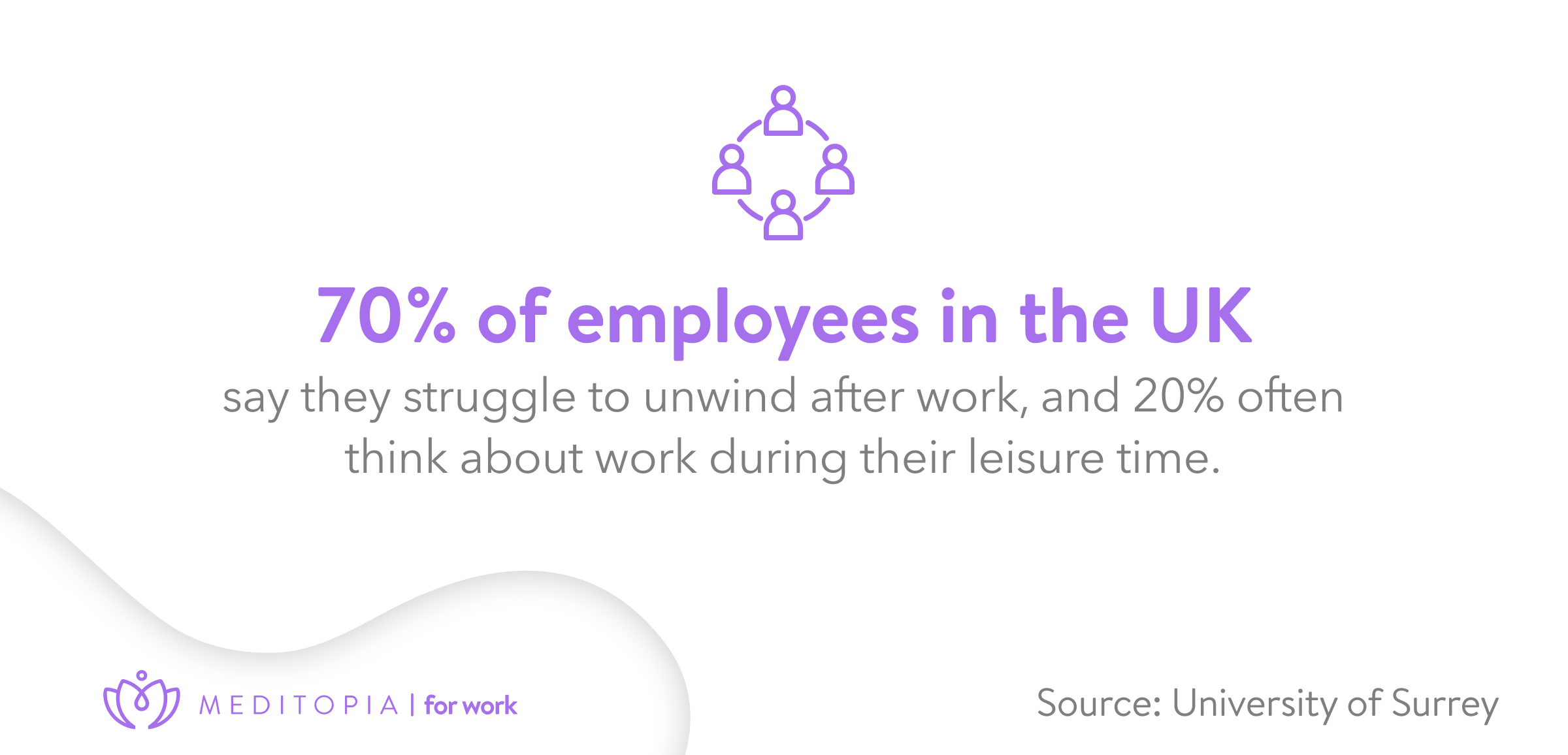
25 Healthy Ways to Unwind After Work
Unwinding after work is also about recovery that protects mental health, prevents long-term burnout, and restores balance. Below are evidence-based strategies, organized by category, with practical activities you can try.
Physical
- Go for a brisk walk in nature: Studies show that a 10-minute walk can boost mood and reduce anxiety levels significantly [5]. Walking outdoors also supports mental recharging by lowering cortisol and increasing endorphins.
- Stretching or yoga: Stretching relieves muscle tension accumulated at your desk. Yoga, in particular, is linked to a 20–30% reduction in perceived stress in workplace-based interventions [6].
- Stair-climbing or brief high-intensity bursts: Short, intense movement (3–5 times weekly for 15–45 minutes) significantly lowers work stress and improves job satisfaction [7].
- Vacation-inspired mental flexibility: Even planning or thinking ahead to a weekend trip can boost creativity.
- Green exercise: Simply being in nature—like walking in a park—restores attention and reduces fatigue. This is one of the 10 most popular ways to relax after work.
Sensory
- Do a digital detox with a sensory reset: Turning off notifications for an hour after work helps your nervous system disengage from constant stimulation. Pair it with calming sensory activities like a warm shower or soothing music. Even brief music listening has been shown to lower stress hormone levels [8].
- Take a warm shower or bath: Heat exposure helps reduce cortisol and activates the parasympathetic nervous system.
- Soothing music: Music therapy reduces cortisol levels and normalizes heart rate. Calming tracks, especially around 60–80 BPM, like the ones we have in Meditopia's Audio Library, activate pleasure centers in the brain.
- Tactile hobbies (anti-doomscrolling): Screen-free, hands-on hobbies like knitting or journaling counteract digital overload and promote focus and calm.
- Guided imagery: Using audio to visualize peaceful scenes—ideally nature-based—reduces anxiety, improves sleep, and enhances relaxation. In our app, you can find many visualization meditations with this purpose.
Creative
- Practice expressive or gratitude journaling: Gratitude journaling increases happiness and optimism, supporting long-term stress relief.
- Cooking, painting, or crafts: Immersing yourself in creative activities induces “flow,” linked to reduced stress and better emotional balance [9].
- Visual art—even without skill: In one study, 75% of participants experienced lower cortisol after art-making, regardless of artistic experience [10].
- Cultural engagement—art, music, theater: Attending concerts, museums, or theater events reduces psychological distress and supports overall well-being [11].
- Expressive arts therapy: Creative expression in forms like drama, dance, or poetry helps manage tension and supports stress relief.
Mindfulness
- Practice deep breathing or meditation: Just five minutes of structured breathing or mindfulness meditation can significantly lower stress. Studies show mindfulness reduces anxiety symptoms by up to 38% [12]. This is one of the most effective ways on how to switch off after work.
- Gratitude or reflection rituals: Ending your day by noting three positives helps train the brain away from rumination. Harvard research shows gratitude practices improve sleep and life satisfaction [13].
- Tai Chi or Qigong: These gentle mind-body practices reduce anxiety and stress while improving mood in healthy but stressed individuals.
- Neuroplasticity breathing practices: Multi-week breathing routines improved calmness and resilience in highly stressed employees.
Social
- Connect with friends or family: Social support is one of the strongest buffers against stress. If you ever think “I feel lonely at work” or notice signs you are being isolated at work, reaching out can counteract those feelings.
- Join a group activity or volunteer: Structured group time—walking clubs, book groups, or volunteering—provides purpose and lowers stress. This is a cornerstone of burnout recovery.
- Group creative workshops: Joining art or dance classes combines social and creative outlets, both linked to lower stress and improved well-being.
- Volunteer with others or attend community events: Volunteering builds purpose, connection, and meaning, which buffer stress and loneliness.
- Attend cultural activities with friends: Concerts, museums, and theater outings build community bonds and improve overall life satisfaction.
How to Build a Personal After-Work Routine
The best routines don’t happen by accident, they’re designed. Think of your evening as a ritual, not a leftover part of the workday. By choosing just 2–3 reliable activities, you can create a rhythm that signals your brain it’s time to recover.
For example:
- Log off → Stretch → Music → No-phone dinner
- Walk outside → Hot shower → Journaling
- Meditation → Cooking → Gratitude list
Stacking small activities that you enjoy creates consistency, and over time your body will begin to associate these actions with winding down.
Dare to try new things, it keeps the curiosity flowing, and you can also get in touch with different types of people.
How to Unwind Without Alcohol or Screen Overload
Many people reach for a glass of wine or mindless scrolling when the day ends, but these habits rarely help you unwind naturally. While they may feel soothing in the moment, they don’t allow for true mental reset and can even worsen sleep quality.
Instead, try restorative options like:
- Herbal teas – calming blends like chamomile promote relaxation before bed.
- Non-alcoholic drinks – refreshing alternatives provide non-alcoholic relaxation without the downsides of alcohol.
- Sensory activities – warm showers, music, or aromatherapy serve as screen-free habits that ease your body into recovery mode.
- Mindful breathing – Just 5 minutes of slow, paced breathing can lower blood pressure and reduce evening stress.
- Journaling or gratitude practice – Writing down a few thoughts helps clear mental clutter and improves sleep.
- Gentle movement – Try stretching or restorative yoga poses to release the day’s tension.
- Evening walk – A short outdoor stroll after dinner helps digestion, lowers stress hormones, and improves mood.
- Bedtime ritual – Read a physical book, practice gratitude, or prepare your space for tomorrow.
The long-term benefits of these choices include deeper rest, improved focus the next day, and sustainable ways to relax after work that don’t leave you drained.
What If You're Feeling Lonely or Isolated After Work?
Evenings can feel especially heavy when you don’t have a strong social network or when working remotely blurs the line between connection and solitude. If you’ve ever felt the weight of coming home to silence after a long day, know that you’re not alone.
The good news is that connection doesn’t always have to mean large gatherings or high energy. Even light, low-pressure interactions can nurture a sense of belonging:
- Group walks – combine fresh air with casual conversation in a setting that feels natural.
- Coworking chats – spend a few hours in a shared space or join a virtual coworking session to break the isolation.
- Online classes – take part in a short creative or fitness class that adds both structure and social contact to your evening.
These small steps can ease the feeling of being cut off and help build meaningful touchpoints in your day.
When to Consider Professional Help
If your evenings are marked by constant anxiety, exhaustion, or emotional strain that doesn’t improve with rest, seeking professional support is not only valid, it’s a healthy choice.
At this point, reaching out to a counselor, therapist, or healthcare provider can provide tools and guidance tailored to your situation.
Moreover, Meditopia offers easy-to-use tools like evening meditations and calming sleep sounds to help you unwind mindfully after work. If your workplace doesn’t yet provide mental health support, consider suggesting Meditopia for Work to your manager or HR, so you and your coworkers can all benefit from specialized programs, online therapy, workshops, mindfulness content, and more, at no cost for you.


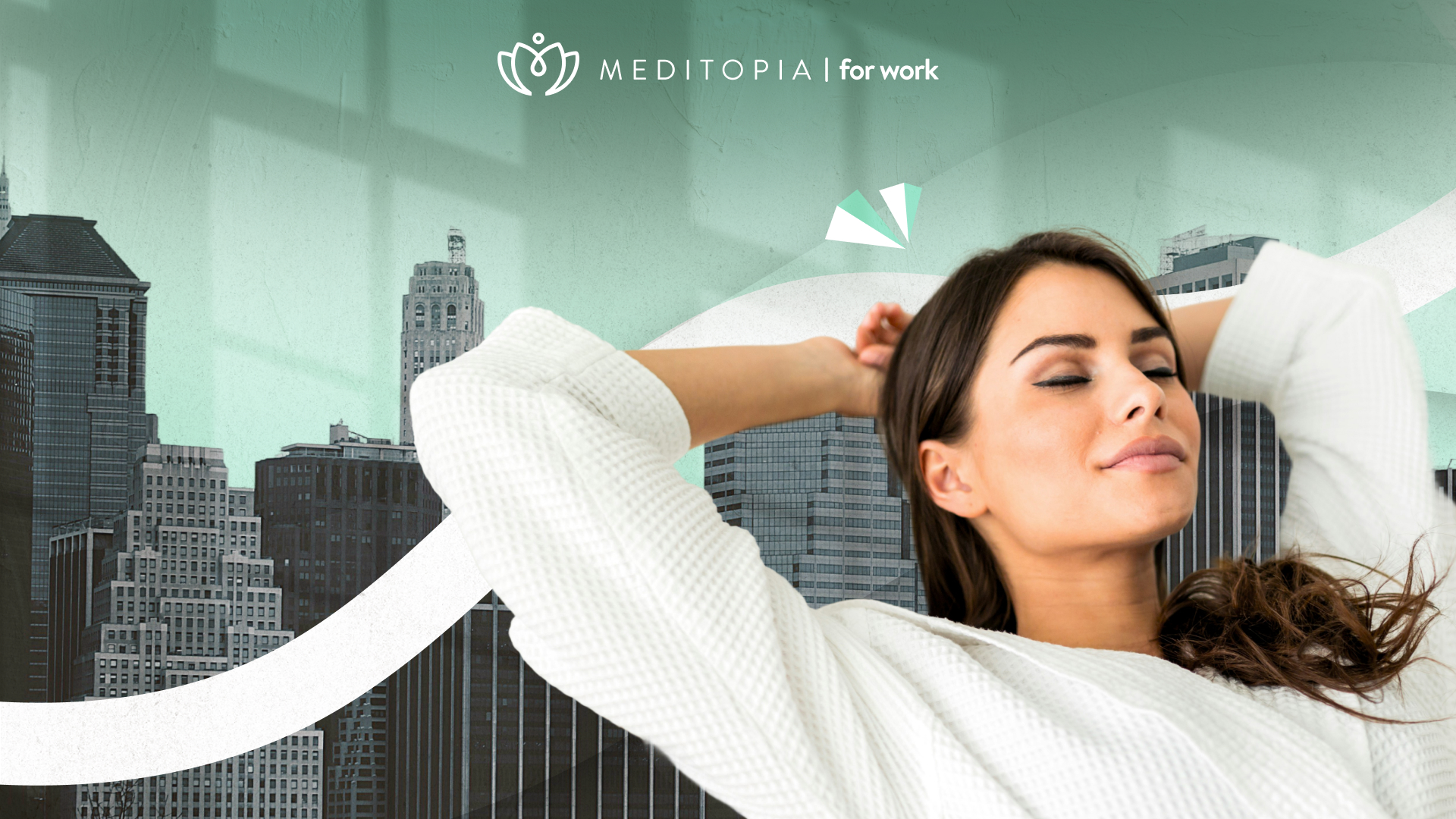



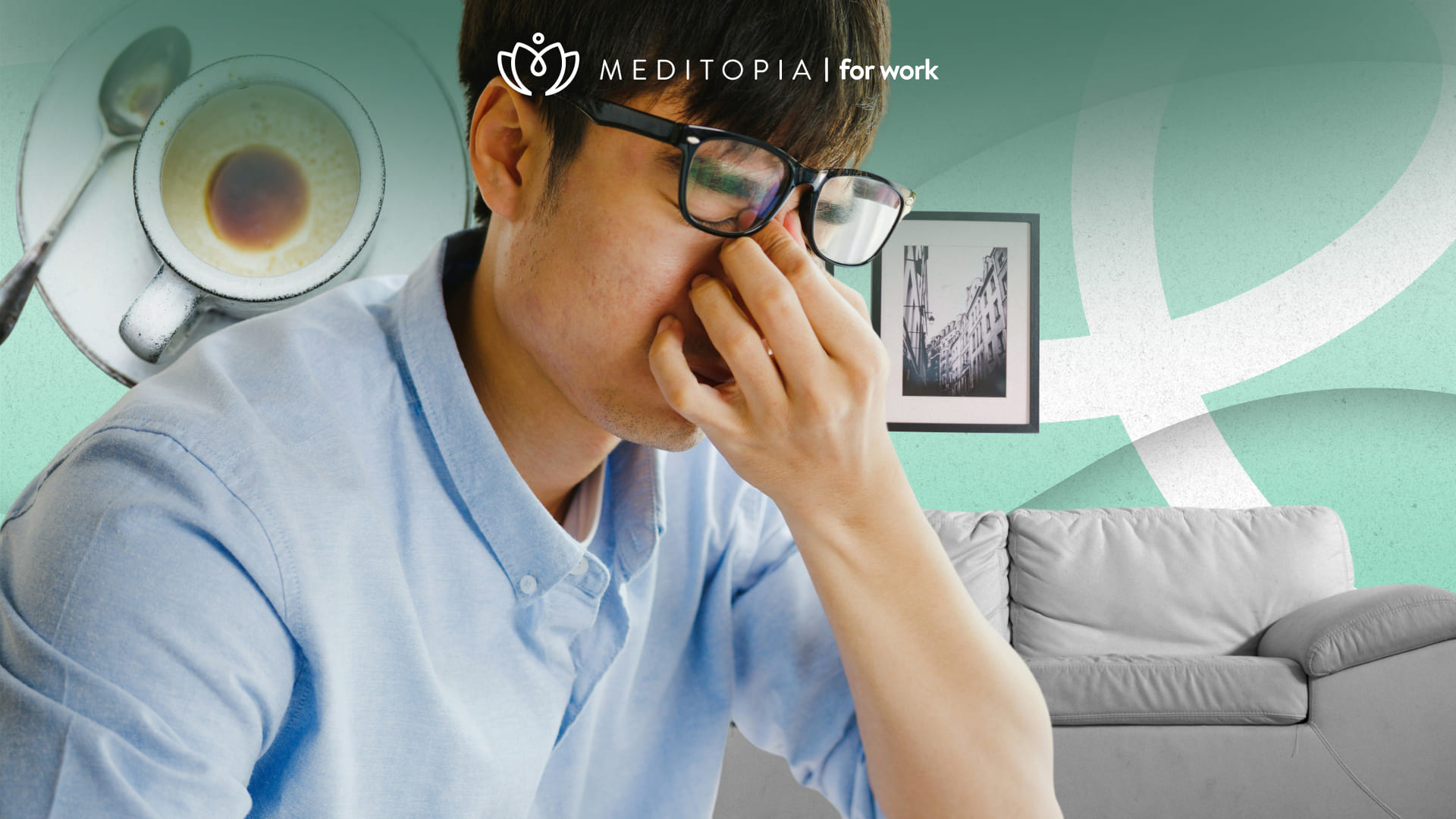

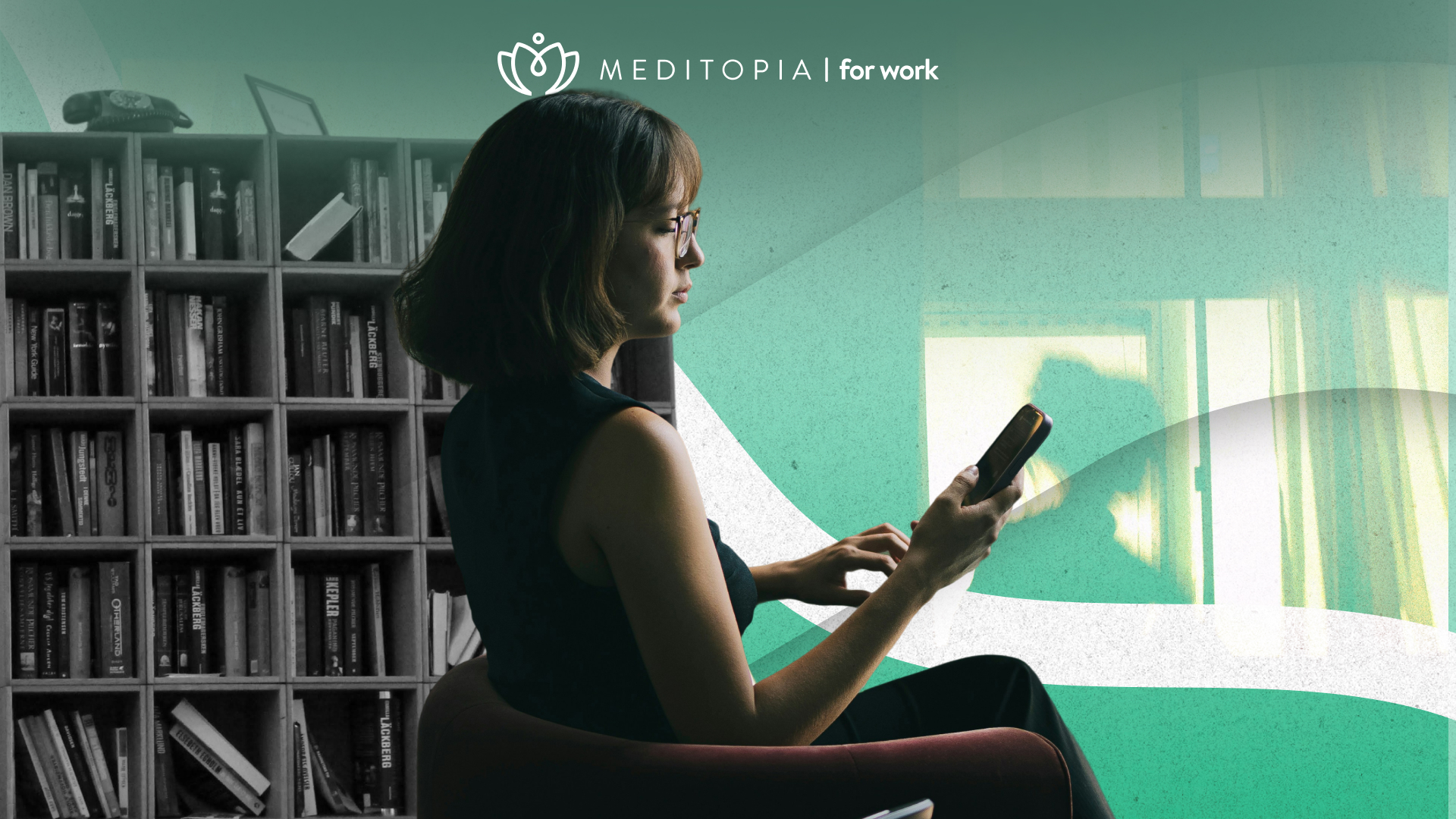

.jpg)
